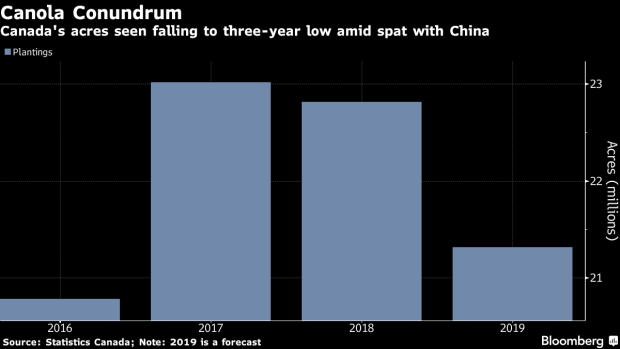Apr 24, 2019
Caught in political mayhem, farmers cut back on canola
, Bloomberg News

Politics are having an unusually large impact in Canada’s farming world this year as producers cut back on canola, durum wheat, soybean and lentil acres, all thanks to a host of trade spats.
The biggest issue is in canola as China, usually Canada’s biggest buyer, shuns imports. Meanwhile, farmers in the Great White North are also seeing reduced exports of durum wheat to Italy, lentils are facing ongoing reduced access to India and global soybean prices are down because of the U.S.-China trade war.
As a result, Canada’s canola plantings will drop 6.6 per cent from last year to 21.3 million acres, a bigger decline than analysts were forecasting, a government report showed Wednesday. Soybean and durum acres will also fall more than forecast.
The political impact on farmers has never been this “bad” before, said Wayne Palmer, a senior market analyst with Exceed Grain Marketing in Winnipeg, Manitoba. “This isn’t a fundamental situation. This is basically what happens when China doesn’t buy from Canada and the U.S.”

The lower plantings may eventually help to bring some relief to markets that have been stuck in a rut. On Wednesday, the lower-than-forecast canola figure helped send July futures up as much as 0.7 per cent to $449.20 in Winnipeg trading. The bounce comes after the contract touched a record low on Tuesday. The price is down more than 10 per cent this year as China-Canada relations deteriorated.
"People are looking for things to plant other than canola, clearly," said Neil Townsend, a senior analyst at FarmLink in Winnipeg. Farmers have time to change their minds on plantings, though. Since the start of April, Townsend said he has heard more growers say dryness has them looking for crops that can handle the conditions better, such as durum.




